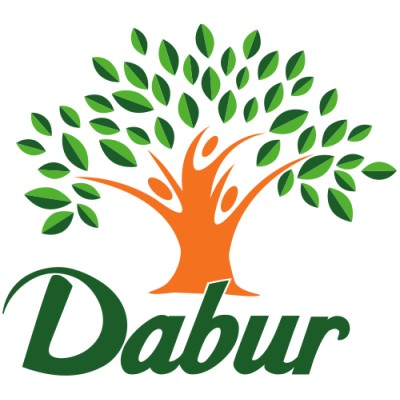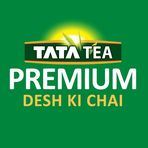The Shifting Sands of FMCG: E-commerce and Beverage Sales in Flux
August 4, 2024, 10:08 pm
The landscape of Fast-Moving Consumer Goods (FMCG) is shifting. Recent reports reveal a troubling trend: beverage sales are dipping. Consumers are gravitating towards carbonated drinks, especially during the sweltering summer months. This change is not just a ripple; it’s a wave reshaping the industry.
In the first quarter of 2024, companies like Tata Consumer Products and Hindustan Unilever reported declines in ready-to-drink beverages. The heat has driven consumers to seek refreshment in fizzy drinks, leaving other categories gasping for air. Hot beverages, juices, and nutritional drinks have all felt the chill of reduced demand.
The CEO of Tata Consumer Products pointed out that their ready-to-drink segment is primarily an out-of-home business. When the sun blazes, people prefer to quench their thirst with something cold and bubbly. This shift is a clear signal that consumer preferences are evolving, influenced by weather and lifestyle.
Meanwhile, the e-commerce sector is experiencing a surge. Quick-commerce, in particular, is emerging as a high-growth channel for FMCG companies. The convenience of having products delivered to your doorstep in a flash is irresistible. Companies like Dabur India and Nestle are riding this wave, reporting impressive growth figures. Dabur, for instance, noted a staggering 70% increase in quick-commerce sales in the first quarter of FY25.
This rapid growth is not just a flash in the pan. A recent Kantar report highlighted that household penetration for quick commerce in major metros has jumped by 31%. This is significantly higher than the 19% growth seen in traditional e-commerce. The trend indicates that consumers are not just buying more online; they are changing how they shop altogether.
Hindustan Unilever also chimed in, stating that e-commerce is growing at three times the rate of modern trade. This reflects a broader shift in shopping habits. Consumers are no longer confined to brick-and-mortar stores. They are exploring new avenues, driven by convenience and speed.
The implications for FMCG companies are profound. They must adapt to this new reality. The market is becoming increasingly segmented. Different channels cater to different shopper missions. Quick commerce appeals to those who want speed, while traditional retail serves a different set of needs. Companies must tailor their strategies accordingly.
Tata Consumer Products reported a 61% growth in e-commerce, with quick commerce accounting for a significant portion of that. This dual growth highlights the importance of agility in product offerings. Companies must be nimble, ready to pivot as consumer preferences shift.
Nestle, too, is not sitting idle. The company has seen strong growth in its e-commerce segment, driven by popular brands like Kitkat and Nescafe. This reflects a broader trend where premium products are gaining traction. Consumers are willing to spend more for convenience and quality, a trend that quick commerce is amplifying.
As FMCG players navigate these turbulent waters, they must also consider the long-term implications of these shifts. The decline in beverage sales could signal a more permanent change in consumer behavior. Are consumers permanently shifting towards carbonated drinks? Or is this a seasonal trend? Only time will tell.
However, one thing is clear: the e-commerce boom is here to stay. Companies that embrace this change will thrive. Those that cling to traditional models may find themselves left behind. The future of FMCG lies in adaptability and innovation.
The rise of quick commerce is not just a trend; it’s a revolution. It’s changing how consumers interact with brands. The convenience of quick delivery is reshaping expectations. Consumers now demand speed and efficiency. Companies must rise to meet these expectations or risk losing market share.
In conclusion, the FMCG landscape is in flux. Beverage sales are dipping, but e-commerce, particularly quick commerce, is soaring. Companies must adapt to these changes. They must innovate and rethink their strategies. The future belongs to those who can navigate these shifting sands with agility and foresight. The journey ahead will be challenging, but for those willing to embrace change, the rewards will be plentiful.
In the first quarter of 2024, companies like Tata Consumer Products and Hindustan Unilever reported declines in ready-to-drink beverages. The heat has driven consumers to seek refreshment in fizzy drinks, leaving other categories gasping for air. Hot beverages, juices, and nutritional drinks have all felt the chill of reduced demand.
The CEO of Tata Consumer Products pointed out that their ready-to-drink segment is primarily an out-of-home business. When the sun blazes, people prefer to quench their thirst with something cold and bubbly. This shift is a clear signal that consumer preferences are evolving, influenced by weather and lifestyle.
Meanwhile, the e-commerce sector is experiencing a surge. Quick-commerce, in particular, is emerging as a high-growth channel for FMCG companies. The convenience of having products delivered to your doorstep in a flash is irresistible. Companies like Dabur India and Nestle are riding this wave, reporting impressive growth figures. Dabur, for instance, noted a staggering 70% increase in quick-commerce sales in the first quarter of FY25.
This rapid growth is not just a flash in the pan. A recent Kantar report highlighted that household penetration for quick commerce in major metros has jumped by 31%. This is significantly higher than the 19% growth seen in traditional e-commerce. The trend indicates that consumers are not just buying more online; they are changing how they shop altogether.
Hindustan Unilever also chimed in, stating that e-commerce is growing at three times the rate of modern trade. This reflects a broader shift in shopping habits. Consumers are no longer confined to brick-and-mortar stores. They are exploring new avenues, driven by convenience and speed.
The implications for FMCG companies are profound. They must adapt to this new reality. The market is becoming increasingly segmented. Different channels cater to different shopper missions. Quick commerce appeals to those who want speed, while traditional retail serves a different set of needs. Companies must tailor their strategies accordingly.
Tata Consumer Products reported a 61% growth in e-commerce, with quick commerce accounting for a significant portion of that. This dual growth highlights the importance of agility in product offerings. Companies must be nimble, ready to pivot as consumer preferences shift.
Nestle, too, is not sitting idle. The company has seen strong growth in its e-commerce segment, driven by popular brands like Kitkat and Nescafe. This reflects a broader trend where premium products are gaining traction. Consumers are willing to spend more for convenience and quality, a trend that quick commerce is amplifying.
As FMCG players navigate these turbulent waters, they must also consider the long-term implications of these shifts. The decline in beverage sales could signal a more permanent change in consumer behavior. Are consumers permanently shifting towards carbonated drinks? Or is this a seasonal trend? Only time will tell.
However, one thing is clear: the e-commerce boom is here to stay. Companies that embrace this change will thrive. Those that cling to traditional models may find themselves left behind. The future of FMCG lies in adaptability and innovation.
The rise of quick commerce is not just a trend; it’s a revolution. It’s changing how consumers interact with brands. The convenience of quick delivery is reshaping expectations. Consumers now demand speed and efficiency. Companies must rise to meet these expectations or risk losing market share.
In conclusion, the FMCG landscape is in flux. Beverage sales are dipping, but e-commerce, particularly quick commerce, is soaring. Companies must adapt to these changes. They must innovate and rethink their strategies. The future belongs to those who can navigate these shifting sands with agility and foresight. The journey ahead will be challenging, but for those willing to embrace change, the rewards will be plentiful.


